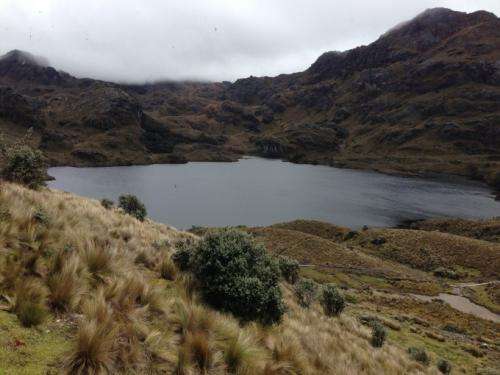Researchers find new evidence of warming

A study of three remote lakes in Ecuador led by Queen's University researchers has revealed the vulnerability of tropical high mountain lakes to global climate change - the first study of its kind to show this. The data explains how the lakes are changing due to the water warming as the result of climate change.
The results could have far-reaching consequences for Andean water resources as the lakes provide 60 per cent of the drinking water for Cuenca, the third largest city in Ecuador.
"Until recently we knew little about the effects of recent climate changes on tropical high-mountain lakes," says Neal Michelutti (Biology), lead author and a senior research scientist at Queen's University's Paleoecological Environmental Assessment and Research Lab (PEARL). "We saw major changes in the algae consistent with the water warming that indicates changes in the physical structure of the water column."
Dr. Michelutti and his research team visited three lakes in Cajas National Park. They retrieved water and core samples from the centre of each of the lakes for analysis. The lakes are accessible only by hiking trails and boats are prohibited. There is also no development within the park meaning the lakes are still in pristine condition.
"Andean societies are amongst the most vulnerable when it comes to the impact of climate change," says Dr. Michelutti. "Warming in the Andes is occurring at a rate nearly twice the global average and it's already impacting water resources as shown in this research. These changes are also a sign of bigger changes that are coming."
Dr. Michelutti and his team are planning to return to the region for further research this summer and will be working with lake managers in the area to try to preserve the water.
"We have previously recorded similar types of threshold shifts in polar and temperate regions," says research team member John Smol (Biology). "These changes are harbingers of processes that will likely affect the food chain and reverberate throughout the ecosystem. We now have data showing that lakes from the Arctic to the Andes, and everywhere in between, are rapidly changing due to our impacts on climate."
To read the study, published in PLOS ONE, visit the PEARL website.
Journal information: PLoS ONE
Provided by Queen's University

















